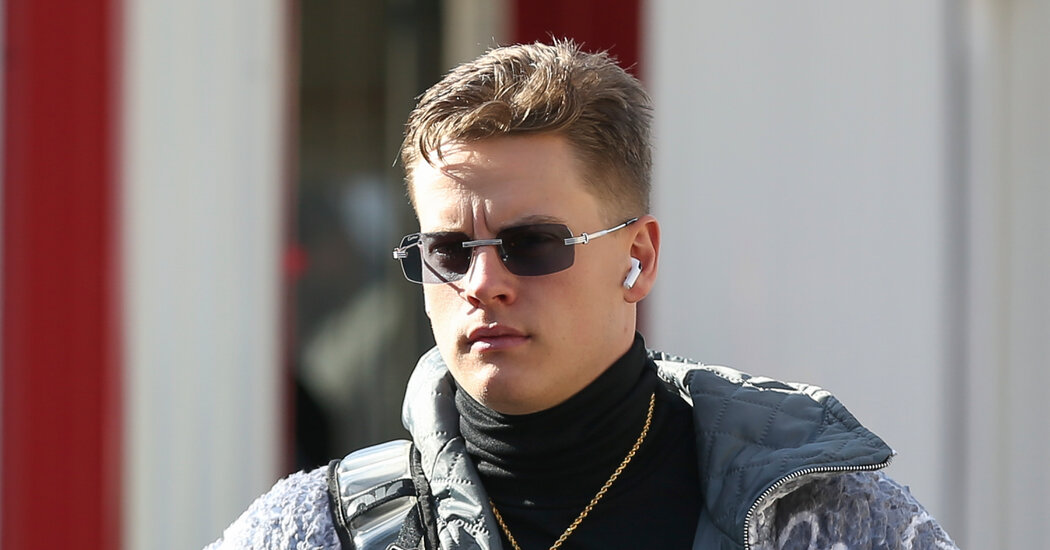
“There’s this tradition of white athletic excellence at a time when the quarterback position is changing, becoming more Black,” said de Oca, the founding director of the Center for the Critical Study of Sport at the University of Colorado, Colorado Springs. “The coolness of Joe Burrow is connected to a Black aesthetic, unlike Tom Brady, who’s such a white quarterback. When you have a white quarterback like Burrow who can code switch, that makes him an especially effective face of the N.F.L.”
Brady has morphed into a brand sophisticate, with a supermodel wife and a growing wellness empire, but he began his career as a naïve, goofy — if hyper-driven — Everyman. Even if Burrow arrived in the N.F.L. as far more accomplished than Brady, having won the Heisman Trophy and a national title at Louisiana State and been selected No. 1 overall in the draft, teammates and longtime friends say he is eminently relatable.
Dive Deeper Into the Super Bowl
For years, Burrow has demonstrated an intuitive understanding of his surroundings and an ability to connect with them. Before his final home game at L.S.U. in 2019, he expressed his appreciation and gratitude for the state that embraced him after his transfer from Ohio State by wearing a “Burreaux” jersey, nodding to the Cajunified spelling of his last name. When he won the Heisman a few weeks later, in his speech he acknowledged the populace back home in rural Ohio facing food insecurity — not because he sought support but because, friends said, he is proud of where he grew up.
“He can walk between so many different groups,” said Zacciah Saltzman, Micah’s older brother. “He’s a clean-cut guy, so old white guys are like, ‘We love this guy.’ Then he pulls up with his chains and his shades, and the younger guys — Black, white, whatever — they can get behind that. He’s a pretty adaptable guy without having to adapt. Who he is attracts the masses.”
Asked last week to quantify that magnetism, Bengals teammates and coaches offered different explanations. Calling him “definitely a baller,” the center Trey Hopkins mentioned both Burrow’s competitiveness and his alacrity in getting up after being hit.
“It’s a nonverbal way of communicating — ‘Hey, I’m in this fight with you,’” Hopkins said.
Dan Pitcher, the Bengals’ quarterbacks coach, cited Burrow’s unabashed comfort in who he is. The left tackle Jonah Williams said Burrow seems unaffected by external opinions and conveys a certain authenticity in his leadership.
Watching him from afar, the Hall of Fame outfielder Ken Griffey Jr. — a son of the Big Red Machine who played nearly a decade in Cincinnati with his hometown team — said he gleaned a similar impression. Few athletes signified cool more than Griffey, who, with his gorgeous left-handed swing and omnipresent backward hat, electrified a generation of baseball fans.




